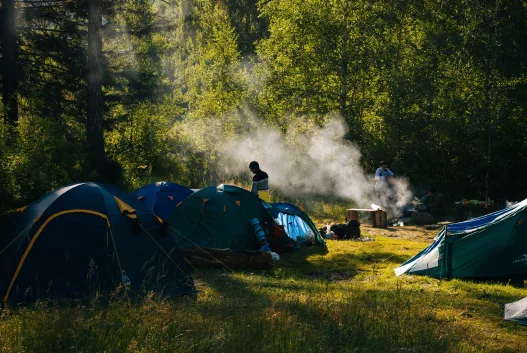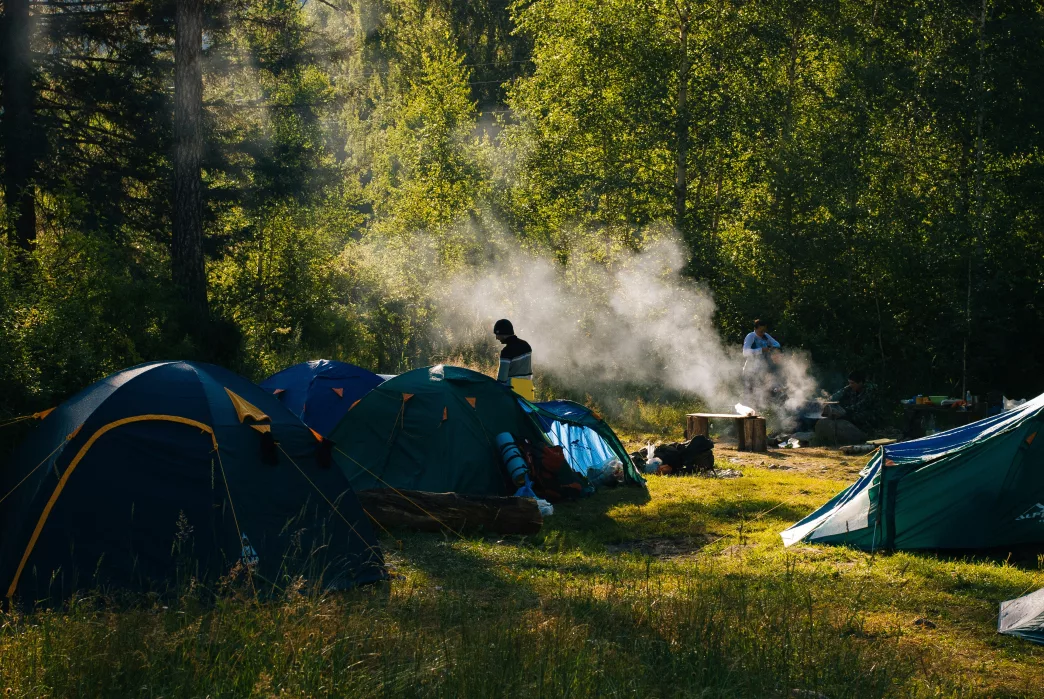Camping offers a wonderful opportunity to reconnect with nature and enjoy the great outdoors. Yet, with this privilege comes the responsibility to maintain the beauty of campsites and ensure a pleasant experience for everyone. Practising good campground etiquette is crucial for being a responsible camper and preserving these natural spaces for future visitors.
Understanding and following campground rules is essential in fostering a harmonious atmosphere. Respect for fellow campers, wildlife, and the environment plays a key role in creating a positive community. Simple actions, such as keeping noise levels down and cleaning up after oneself, can significantly enhance the camping experience for all.
By recognising the importance of etiquette in camping, individuals can contribute to a more enjoyable and sustainable outdoor experience. Learning the fundamental principles of responsible camping ensures that everyone can appreciate nature’s serenity while safeguarding it for generations to come.
Understanding Campsite Basics
Campers should know key factors about selecting a site, the proper ways to arrive and depart, and managing waste effectively. These basics contribute to an enjoyable outdoor experience while respecting natural habitats.
Selecting the Right Campsite
Choosing the appropriate campsite is crucial for safety and enjoyment. Locate a site that is flat, away from potential hazards like falling branches, and at least 200 feet from water sources to protect local wildlife.
Check for existing fire rings and avoid areas with extensive vegetation to minimise ecological impact. Verify the campsite’s rules, including any restrictions on campfires and maximum occupancy, to ensure compliance with local regulations.
Before settling, consider the prevailing wind direction for smoke management and the potential for noise from nearby bodies of water or paths.
Arriving and Departing Considerations
Timing is important when arriving at and leaving a campsite. It is advisable to set up camp well before dusk to ensure adequate light for setting up tents and organising gear.
Pack quickly and efficiently when departing, leaving the site neat. With minimal disturbance to wildlife and the environment, ensure all personal belongings are accounted for, and clean up any traces of the stay.
Inform fellow campers nearby about arrival and departure times, as this fosters a communal atmosphere while preventing unexpected disturbances.
Managing Waste Responsibly
Proper waste management is essential for maintaining a clean environment. Campers should adhere to the “Leave No Trace” principles by disposing of waste correctly. This includes packing out all trash, leftover food, and other debris.
Use designated waste disposal areas if available. For human waste, follow the guidelines for digging a cat hole or using a portable toilet.
Keep biodegradable items, like food scraps, out of the campsite. Wildlife can be attracted to them, leading to unsatisfactory encounters. Ensuring responsible waste management protects both the environment and future camping experiences.
Respecting the Environment and Wildlife
Responsible campers play a crucial role in maintaining the integrity of natural spaces. Respecting the environment and wildlife involves specific actions that ensure minimal disruption to ecosystems and their inhabitants.
Adhering to ‘Leave No Trace’ Principles
‘Leave No Trace’ principles guide campers in preserving natural areas. These guidelines emphasise the importance of minimising impact during outdoor activities. Key principles include:
- Plan Ahead: Research the area and prepare adequately.
- Travel and Camp on Durable Surfaces: Stick to established trails and campsites.
- Dispose of Waste Properly: Pack out all rubbish, including food scraps and litter.
- Leave Natural and Cultural Features Undisturbed: Do not disturb plants, rocks, or historical sites.
By following these principles, campers contribute to keeping the environment clean and undisturbed for future visitors.
Interacting with Wildlife
Wildlife encounters can enrich the camping experience, but one must approach these interactions with caution. Campers should follow guidelines to avoid harmful situations:
- Observe from a Distance: Use binoculars to view animals without approaching them.
- Do Not Feed Animals: Feeding wildlife alters their natural behaviours and can lead to dependency.
- Store Food Securely: Keep food in bear-proof containers or hang it out of reach to prevent attracting animals.
By respecting wildlife and their habitats, campers help ensure that these creatures thrive and remain a natural part of the camping experience.









